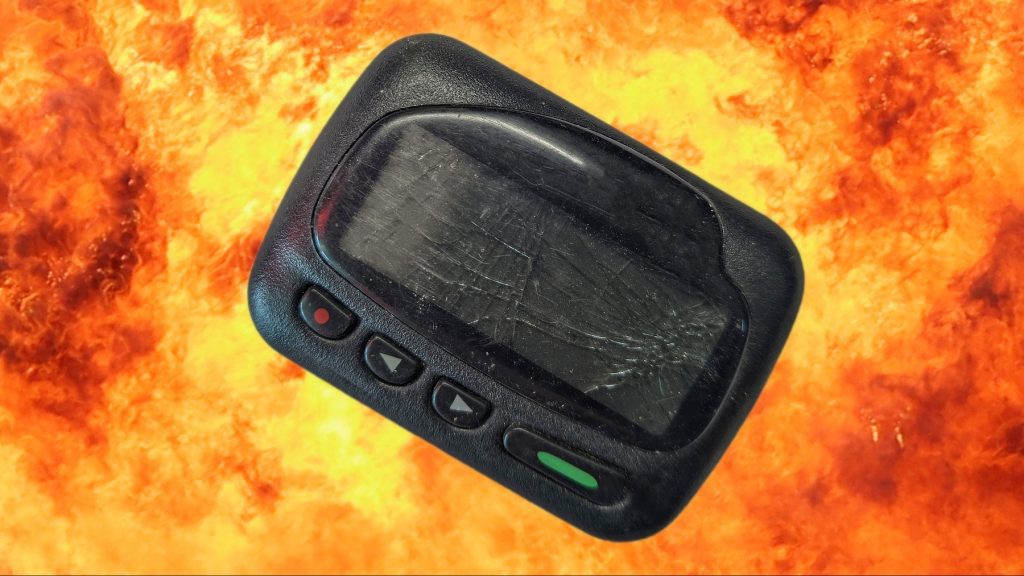
Since September 18, Israeli attacks on Lebanon have exposed key smartphone security vulnerabilities, revealing detrimental and life-threatening risks posed by outdated technology and highlighting an urgent need for stronger mobile device protection in the country.
Israel’s recent attacks targeting walkie-talkie and pagers in Lebanon have really shaken the very foundations on how we perceive our day-to-day technology usage. These incidents are a forewarning of the voluminous list of security threats and vulnerabilities with smartphones that surround us every moment and emphasize the importance of safeguarding our gadgets in a digitally interconnected environment.
Where Technology Goes, So Do Questions of Privacy and Security
The attacks in Lebanon were also a wake-up call against the backdrop of general questions about how safe our devices can actually be. In view of the rapid development of AI, new challenges are set for keeping data secure, especially in the face of critical security threats and vulnerabilities with smartphones.
The ruthless Israeli war in Palestine and Lebanon has revealed to the world how AI has brought disruptive and destructive changes into many industries. It has also brought potential hazards, particularly regarding personal safety and privacy. Nowadays, AI is enabled to analyze and process an immense amount of information. If misused, this facility might result in critical breaches of privacy. One of the most prominent examples would have to be how AI enabled equipment in smart home systems that learn user behaviors and can present hacking targets, further intensifying critical security threats and vulnerabilities with smartphones.
This incident in Lebanon regarding the smartphone security vulnerabilities raises a very valid question: can we really trust our devices?
If Israel can exploit any digital weakness – something that, if we may dare say, has become an extension of our very lives – then others might as well, pushing consumers to question the security of these devices. No one denies that technology, particularly AI, offers a wide range of advantages. However, as we embrace these advancements, we must also recognize the need to maintain strong defensive measures against potential misuse, including terrorist acts similar to those attributed to Israel.
In Lebanon’s case, on September 18, organizations worldwide condemned Israel’s actions, labeling them as acts of terrorism. Former CIA Director Leon Panetta, in an interview with CBS, questioned the true motives behind technological development in times of war, pointing to how Israel has turned communication devices into ticking bombs.
“The ability to able to place an explosive in technology that is very prevalent these days and turn it into a war of terror. Really, a war of terror. This is something new,” Panetta told CBS.
“I don’t think there’s any question that it’s a form of terrorism,” Panetta said, adding that “this is going right into the supply chain… And when you have terror going into the supply chain, it makes people question what the hell is next?”
If one country can do it, others might too, and that should raise some questions among consumers about the security of their gadgets. While AI brings many fantastic advantages, it requires us to become vigilant and take necessary precautions against its possible misuse, at least as regards our personal information.
Protection of Your Devices in Times of War
As devices start taking over most tasks in daily life, it is critical that you not only know the danger but are also being more proactive. A few ways by which you can enhance your technological security include:
- Choose legitimate brands: Research into the brand before buying any device. Ensure they have a concrete reputation when it involves security and check for any earlier breaches.
- Regular security updates: Always keep your device updated with the latest security patch. Using outdated technology invites avenues for cyber-attacks, exposing you to outdated technology threats.
- Limit access: Be choosy as to who gets access to your device. Physical tampering usually goes unnoticed yet may bring serious breaches.
While this is a dynamically connected world, everything that we possess may be an entry point for a cybercriminal. It is thus not only important to secure our own devices but also to realize how interconnected systems can provide wider points of vulnerability. Whether it’s regular updating of software, strong passwords, or less sharing of data that is not required, these precautions go a long way in protecting mobile devices from hacking.
The attacks in Lebanon punctuate a reality that no device is too small or seemingly insignificant to avoid being targeted, and as technology becomes increasingly intertwined into our lives, so too must our efforts to avoid smartphone security vulnerabilities.
Inside Telecom provides you with an extensive list of content covering all aspects of the tech industry. Keep an eye on our Tech sections to stay informed and up-to-date with our daily articles.